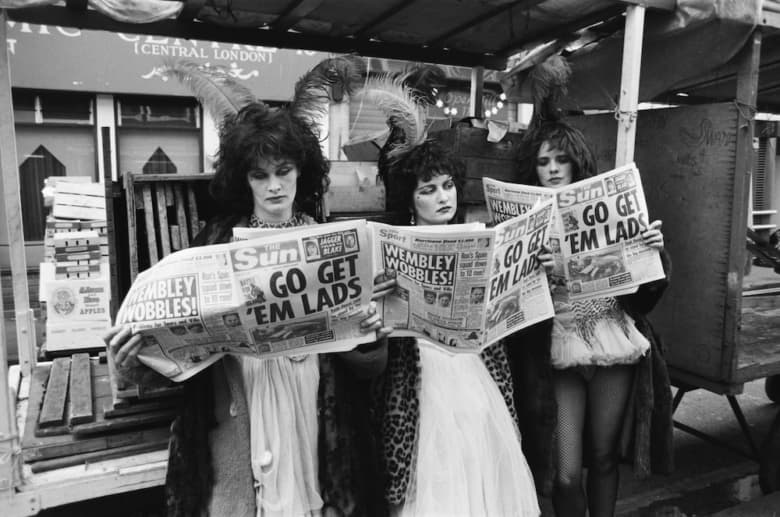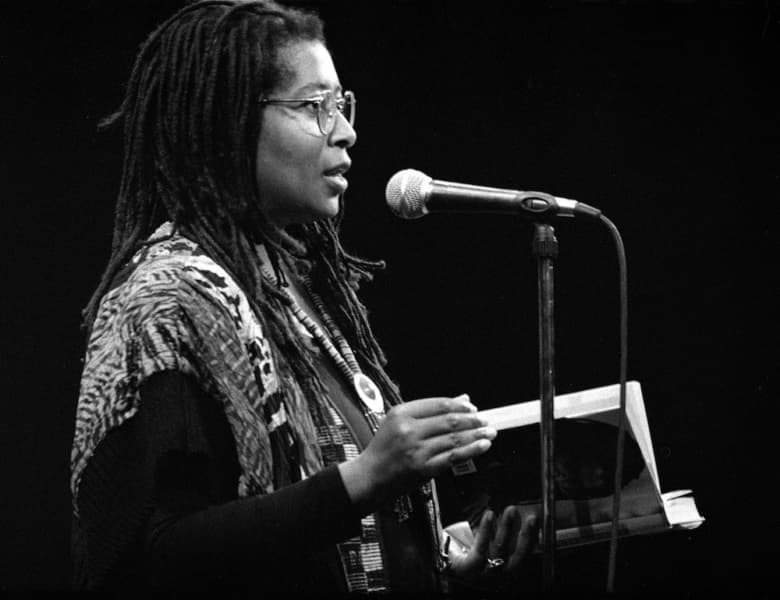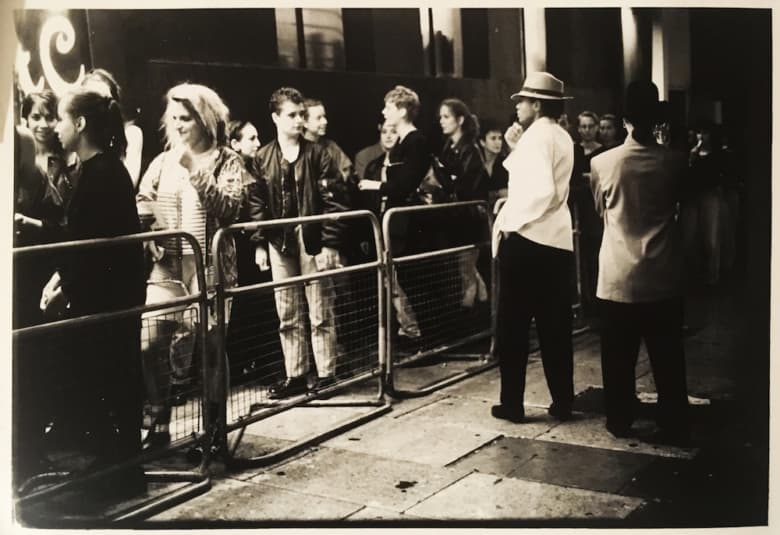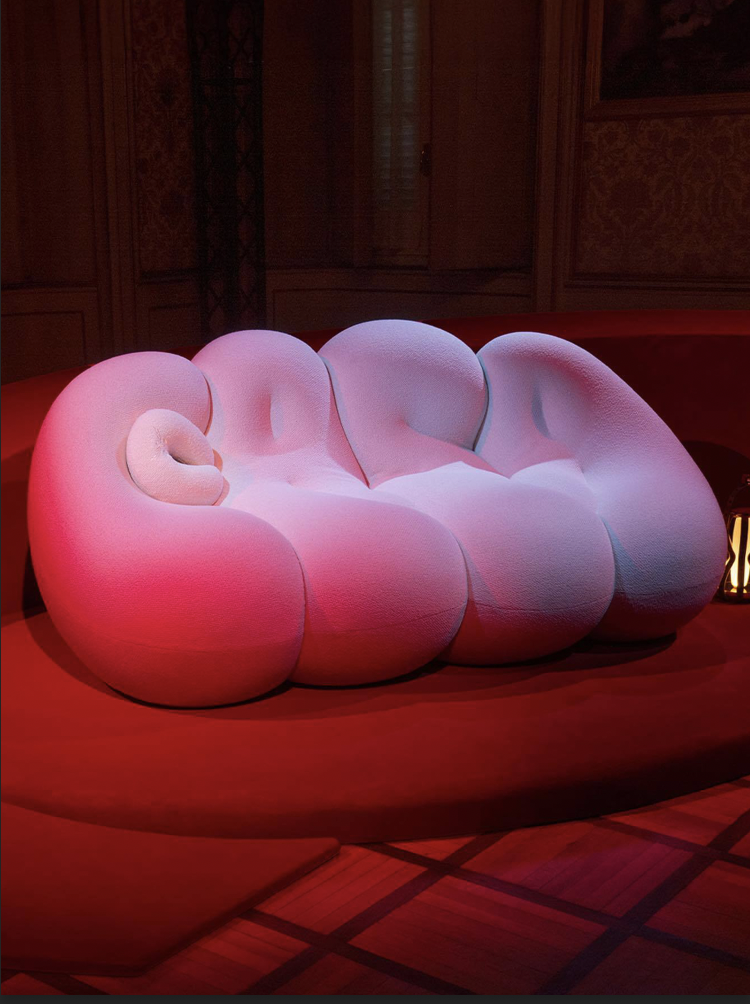Out of the clubs and into the streets
Much has been made of the importance of club culture to queer people. During times of criminalisation they provided pockets of resistance, in an age before dating apps they allowed queer people to actually hookup and nowadays, well, LGBTQI+ spaces still have the best parties. However, far less attention seems to have been paid to the ways that queer people exist in the day-to-day world; perhaps because cis-heterosexual don’t really care about members of the queer community unless they’re being their most fabulous, most entertaining selves.
Hot Moment, now showing at Auto Italia gallery in London, hopes to bridge this gap in representation by centring on the work of Tessa Boffin, Ingrid Pollard, and Jill Posener, three lesbian photographers who examined the intersections of private and public life in the UK of the ‘80s and ‘90s. Emerging from the spectre of British conservatism, when the lives of queer people were under heightened scrutiny due to the right-wing hysteria surrounding the HIV/AIDS crisis, these artists helped envisage new ways of conceptualising lesbian identity within the public sphere.
Reacting to damaging depictions gender-non-conforming lesbians and transmasculine people in the media, Tessa Boffin’s photos take an ironic sideways glance at the wider culture of the age with the Kings Trial skewering the tabloid notion that transmasculine people’s gender expression was a means of duping straight women into bed. Elsewhere, Jill Posener deconstructs sexist advertising of the day, with images of vandalised billboards such as one promising that Lesbians United will “improve your nightlife” (probably true).
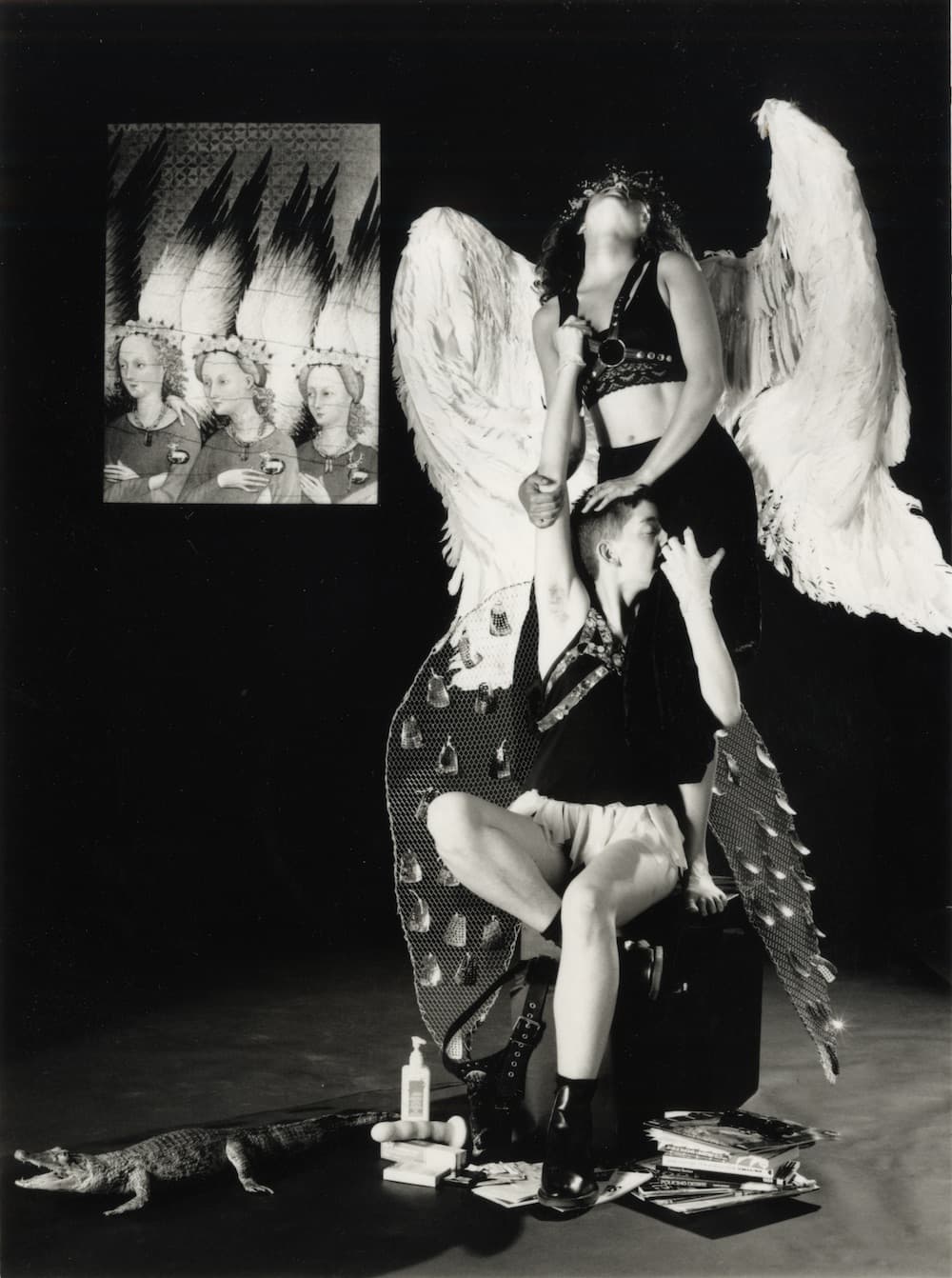
Ingrid Pollard’s work, on the other hand, documents the Black lesbian community of the period. A member of Late Start Film and Video Collective, which documented conversations among peers such as Audre Lorde and Jackie Kay, her photography allows contemporary viewers a glimpse into an important intellectual and artistic milieu of the near past. Her images of Club Sauda, a cabaret created for and by Black womxn, offer up insight into counter-cultural spaces of the era whilst helping to preserve their memory for future generations. One of the most important lesbian photographers living today, her work is an important link in understanding both the construction of lesbian identity and the recent histories of the UK’s queer community.
Destabilising the notion that lesbians should downplay their queerness in order to assimilate to heterosexist wider society, Boffin’s work places sex and alternate formulations of queer desire at the centre of her work. A prime example of this is “Angelic Rebels: Lesbians and Safer Sex” which features a mix of BDSM paraphernalia, Victoria Secret Angels-style wings and collage effects to create an alternate, updated altar painting of sorts. Mixing the sacred and the supposedly profane, the artist collapses hierarchies around socially-sanctioned expressions of devotion to evoke a transcendental experience of queer love.
Viewing the works in 2020, there are striking parallels between then and now. The constant attacks on trans people – particularly trans women and transfeminine people – has a clear precedent in the ways that lesbians and gay men, as well as previous generations of trans people, were dragged in the British tabloids of the 80s and 90s. As the LGBTQIA+ becomes splintered by the lesbian, bi and gay people who refuse to acknowledge or support their trans and non-binary siblings, Hot Moment reminds us of many of the historical reasons why we need to stand together. In particular, with so much of the organised transphobia in the community coming from TERF lesbians, the exhibition gestures towards reclaiming a lesbian-feminist politic in the name of all womxn, not just the cis ones, as well as the non-binary and transmasculine people whose rights and safety must also be fought for.
Hot Moment on show until 14 March at Auto Italia South East as part of Condo London.
